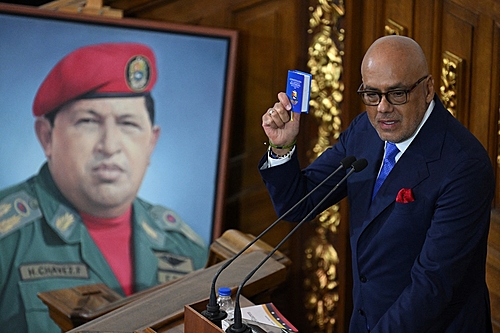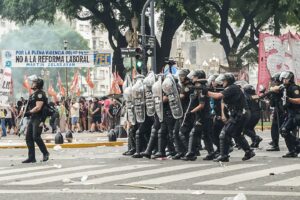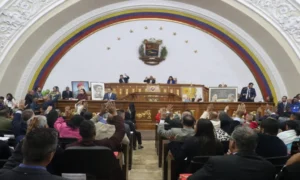
The President of the Venezuelan Parliament, Jorge Rodríguez, threatened this Thursday (13) to reject the presence of a European Union election observation mission in the next presidential elections in the country, which should be held in 2024.
The statements come in response to a resolution approved this Thursday morning by the European Parliament that condemns the disqualification of Venezuelan opponents and asks for an “independent process” to choose a new National Electoral Council (CNE) in the country.
“I tell you, Josep Borrel (EU High Commissioner for External Affairs), no observation mission from Europe will come here as long as we are the representatives of the Venezuelan state, they will not come. They violated the agreement we signed with them,” he said. Rodriguez.
::What’s happening in Venezuela::
The head of the Venezuelan Legislature still called the European resolution “human imbecility”, stating that the document contained “delirious postulates” about Venezuelan politics.
“Old Europe, nostalgic for the empire it was, is trying to show its decayed teeth to Venezuela and even if this is an imbecility, we must show our deepest rejection of this attempt at imperial interference”, he said.
With 495 votes in favor and 25 against, the European Parliament approved a resolution that condemns the disqualifications of Maria Corina Machado, Henrique Capriles and Freddy Superlano, all pre-candidates for the Presidency who will dispute the opposition primary elections.
::Without US sanctions relief, Venezuela expands partnerships with Russia and China::
In addition, MEPs asked for an “independent procedure” for choosing a new National Electoral Council (CNE), which is undergoing a renewal of its direction and should be reformed by the Venezuelan National Assembly.
Also according to the approved document, Venezuela allegedly ignored the recommendations made by the last electoral observation mission that was present in the country for the 2021 regional elections that elected mayors, governors and state deputies. At the time, the EU was sending a mission to Venezuela for the first time in 15 years and, despite pointing out some crimes, it gave international credibility to the election.
Parliament’s resolution also states that the “upcoming EU-CELAC summit is an opportunity to uphold the principles of the rule of law, democracy and human rights”.
reactions
After the disqualification of former deputy Maria Corina Machado became public on June 30, the US, the EU and presidents of other countries criticized the decision and showed solidarity with the opponent.
Caracas, for its part, rejected the statements and classified the postures as “interference”, reaffirming the “sovereignty of Venezuelan institutions”.
According to a letter from the Comptroller General of the Republic, Machado is unable to hold any public office for 15 years because the opponent would have hidden goods and assets from her patrimonial statement that should have been presented when she was a deputy in Parliament. Machado denies the accusations.
::The end of Guaidó’s ‘presidency’ reflects the exhaustion and crisis of the right wing in Venezuela::
An ultra-liberal conservative, Maria Corina is an engineer and the daughter of one of Venezuela’s biggest businessmen who died in January of this year. She entered politics as director of an NGO that supported the 2002 coup against former President Hugo Chávez and called the 2004 recall referendum.
Today, affiliated with the Vente Venezuela party, she is one of the favorites for the opposition primaries and, if elected president, proposes the privatization of almost all state companies and services in the country.
Editing: Thales Schmidt
Source: www.brasildefato.com.br

